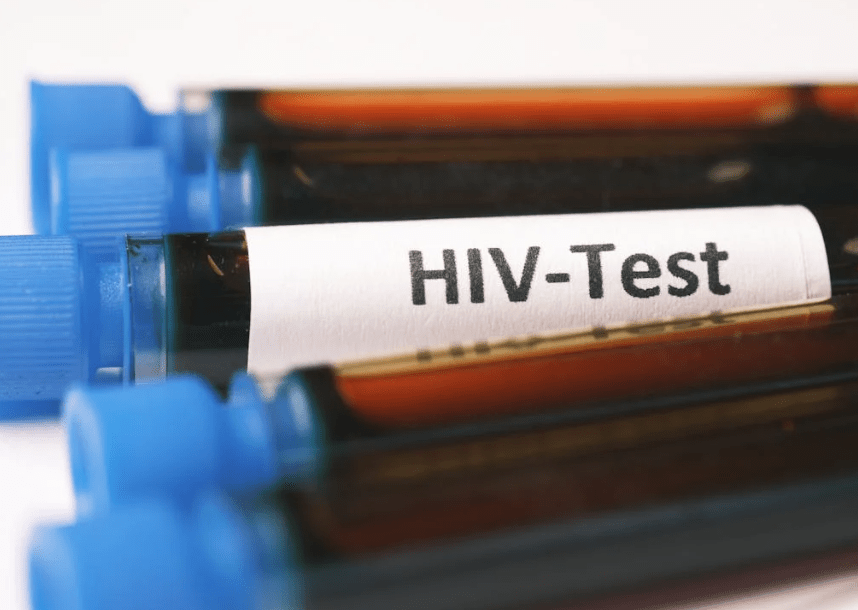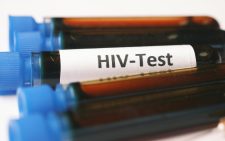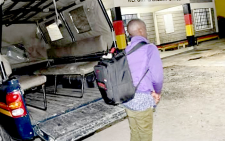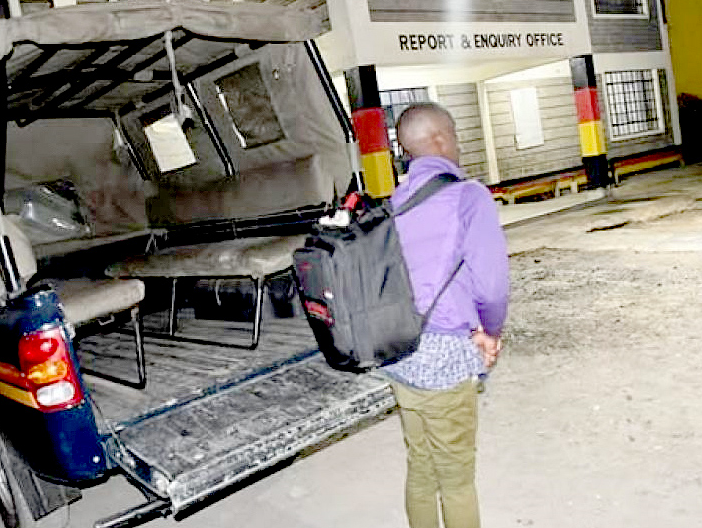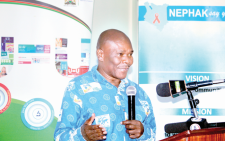Forgotten: Children living with HIV in a pandemic
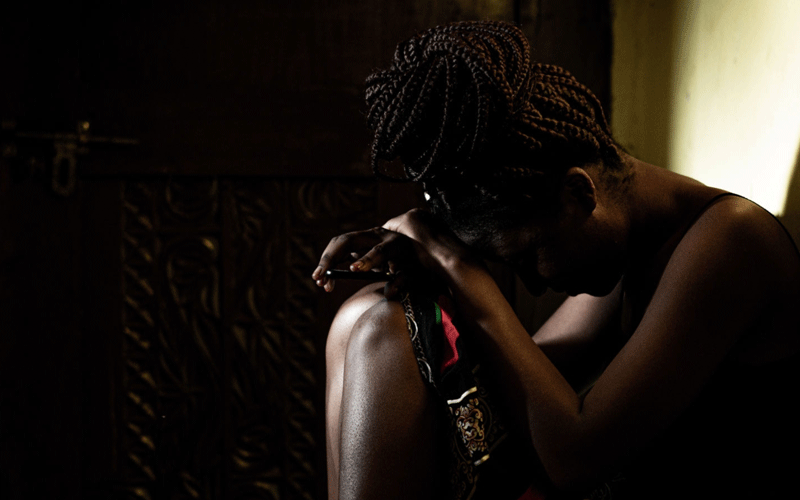
As the world observes Aids Day tomorrow with the theme ‘Global solidarity, shared responsibility’, children come under focus with experts calling for more attention on them, especially in the wake of Covid-19.
With each breath he took, the smile on Abraham’s* shiny face, punctuated occasionally by deep thoughts, appeared to brighten.
After making his way together with a caregiver to Pumwani Maternity Hospital’s gate in Nairobi, one of the facilities providing a comprehensive unit for patients living with HIV/Aids, the 14-year-old waited patiently for doctors to call him in for his latest blood test.
Seven years ago, Abraham was healthy and playful before he started showing signs that forced him to get tesed, his father, James, told People Daily.
Since mid-July this year, when more than 40 employees at the country’s largest maternity hospital tested positive for the coronavirus, the management took measures to avoid crowding in the facility.
But the measures meant to contain the spread of the virus, is fuelling another slow epidemic; stigma and discrimination among people living with HIV/Aids, said James.
Many people, as a result, are missing their Antiretroviral (ARVs) drugs for fear of stigma.
It was only the sound of his name that appeared to startle him.
After Abraham’s blood tests, he was handed his monthly dosage and headed back home in Kiambiu slums
“We now get our monthly Antiretroviral drugs (ARVs) at the gate. I never knew this would be the case.
After your name is read on the list, the gatekeepers (watchmen) allows you into a small room for consultation with the doctor before you get your dose,” Abraham began, adding that the pandemic has posed challenge in accessing treatment.
Since he was enrolled for treatment and care, Abraham health has improved, explains the father.
Abraham has what expert term as undetectable viral load, meaning the ARVs he takes have reduced the virus in his body to such lowquantities tha it can no longer be detected by standard blood tests.
“In 2016, for example, his viral load was alarmingly high peaking at one million. We were worried as his caregivers,” noted his father who is also living with the virus.
People living with HIV who have an undetectable viral load cannot pass HIV on through sex, but that does not mean they are cured and should continue being on treatment.
New ways
When Abraham became sick, his mother separated from the father complicating matters even further.
“When I took him for tests, I was told he had low immunity. They later told us it was HIV.When I also took the test I also tested positive.
Life has not been easy since then. It is difficult being the mother and father of two boys,” said James.
Teenagers, women, specifically HIV-positive young mothers, and their babies living in rural areas are more susceptible to stigma, leading to dangers such as failure to adhere to medication as they struggle to hide their infection.
And for young people like Abraham, the Covid-19 pandemic has pushed him to devise new ways of taking his medication.
In order to keep co-infections such as the raging Covid-19 that can pass from his father (who usually goes out to look for menial jobs to keep them going) to him, he makes sure the father doesn’t come into contact with the drugs. They stay in a one roomed house, making it hard to avoid contact.
“At home, I keep the drugs at a safe place only known by me. Since my father mingles with a lot of people, I make sure he does not touch the drugs by keeping them safely myself,” said Abraham.
But the time of taking medication has always proved a hard task for the young boy.
In his prime, Abraham is active and has friends he plays with. But he noted that whenever he wants to take his medication, he “always chase them away pretending it is late.
And for visitors who come to see my father I just tell my dad to keep them busy as I take the drugs”
“Another big challenge with the ARV drugs, is the noise made when you are taking them,” added Abraham.
Abraham is among half of children aged below 15 years living with HIV that are receiving antiretroviral therapy globally, scientist say.
Dr Irene Mukui, the HIV Access and Medical Affairs Leader at Drugs for Neglected Diseases initiative (DNDi) Africa regional office in Nairobi, says children generally have less access to HIV testing and less access to HIV treatment compared to adults.
Dr Mukui notes that globally, only six out of 10 newborns get tested for HIV at two months old.
In total, about 1.8 million children are living with HIV, and 1.4 million of them— 63 per cent-are in sub-Saharan Africa.
She said over 300 children and adolescents die every day from Aids related causes while about 400 children are infected with HIV daily.
“Currently, 90 per cent of HIV infections occur through mother to child transmission, with 90 per cent of paediatric (or children) infections occurring in sub-Saharan Africa,” said Dr Mukui at a recent Science Journalists conference organised by the Media for Environment, Science, Health and Agriculture (Mesha).
However, several life-saving HIV services have been hit by the pandemic, according to studies.
Unicef says the pandemic has worsened inequalities in access to life-saving HIV services for children, adolescents and pregnant mothers with one-third of high HIV burden countries at risk.
In its latest report, Reimagining A Resilient HIV Response For Children, Adolescents And Pregnant Women Living With HIV, the UN body warns that children are being left behind in the fight against HIV
For Abraham it has not been easy. In 2016, Abraham developed kidney complications and was admitted at Kenyatta National Hospital.
“I could not breathe well, my body was swelling all over. My father took me to several hospitals, but they were not able to find anything.
It was only at KNH that they were able to find the problem” he narrated. Abraham has since recovered. He now strictly follows the doctor’s advice,
“I was advised to avoid salty foods, and that has also become part of my life,” noted Abraham.
For years, Abraham has adhered to his treatment. And to him, even the slightest of stigma or discrimination is not likely to dampen his spirit.
But what keeps the jovial young man going, he said, “I only concentrate on my life. I will not look at what other people do or say. I just pick my drugs because my life depends on it.”
Treatment keeps HIV under control, protecting the immune system so that one can stay healthy and live a long life.
When Children Living with HIV (CLHIV) miss such care, it jeopardises their growth says expert.
Veronica Onjule is the Community Healthcare Volunteer who covers Kamkunji constituency including Shauri Moyo, Eastleigh and Kiambiu region where Abraham lives.
The major challenge among young people living with HIV/Aids is on drug adherence to dosing schedules, compliance with clinic visits and retention in care, she noted.
Follow regimen
“At this age, children are very active. They are discovering a lot of new things and if not followed closely, they end up missing their dosage.
This is why my job is cut out to making sure I follow and refer such cases to health facilities for treatment,” said Onjule who trains and takes care of over 600 caregivers in the constituency.
But since the pandemic hit, she lamented that working with caregivers is becoming more challenging by the day. She pointed at mistrust between caregivers and some non-governmental organisations who are promising help, but delivering hot air.
“Many organisations come to the slums, we help them register CLHIV’s for support. But they disappear never to be heard of again.
And this is now brewing bad blood, many caregivers do not want to be associated with us and this is detrimental to retention of the patients on ARVs or follow up activities,” she adds.
Dr Mukui noted that treatment for children can be complicated and more expensive.
“You require a combination of pills or liquids or pills and liquids. Some pills can also be difficult to swallow and some liquids have unpleasant taste,” she said.
There are fewer studies in children and as a result, fewer combined treatments for children compared to adults, she explained.
The government is working to end the problem, says Dr Catherine Ngugi Head of the National Aids and STIs Control Programme (Nascop).
Alarming numbers
“The government is now investing more in innovative testing approaches such as self-testing.
Infants born to HIV-infected mothers now have access to prompt HIV diagnosis and treatment,” she said.
Although Nascop statistics indicate the number of children living with HIV has reduced from 191,840 to 106,000 between 2015 and 2020, Dr Ngugi is concerned that if the disease is ignored as all interventions are directed to Covid-19, the country will be sitting on a ticking time bomb.
“Every year, we lose about 4,000 children to HIV. We need to address the needs of children living with HIV, especially during this pandemic,” she said.
According to the World Health Organisation (WHO), without access to testing and treatment, 50 per cent of children with HIV will die by the age of two, and 80 per cent will not live to their fifth birthday.
WHO recommends that infants born to mothers living with HIV are tested for the virus by two months of age, during breastfeeding, and when breastfeeding ends, given continued risk of transmission during this period.
Where Onjule operates, septrin shortage is still being felt several months since the government assured of restocking.
“Most caregivers and children are asking us where the septrin,” said Onjule.
Abraham’s father has not been feeling well of late due to lack of septrin.
“The inadequacy of services….may also increase vulnerability to HIV /AIDS in situations where the healthcare workers have been redeployed to deal with the pandemic,” Onjule added.
Dr Mukui notes that to tame the tide, there is need to strengthen Prevention of mother-to-child transmission (PMTCT) services, availing diagnosis and testing closer to children.
“Medicines specifically adapted to the needs of children need to be developed and kept at an affordable price,” she noted.
“Government, non-governmental organisations, research partners, health experts, civil society and the media need to advocate strongly for the development of child-friendly combinations to make treatment easier for children,” Dr Mukui added.
James said while he was still in the dark about his son’s future, he had no idea how life could be then.
“My son nearly died. But now, he could go on to live a full life, all praise to God, he is now doing much better,” James says.
Even as I leave him to continue with his daily routine, Abraham has a word for other children battling HIV/Aids.
“You hold your life in your hands. Let no one miss their drugs for those already in treatment,” he said. (The patients’ names have been changed to protect their identity)
